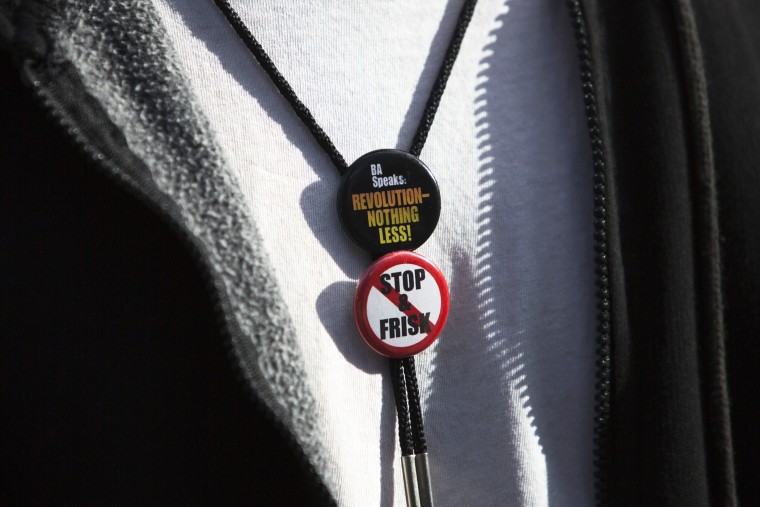The New York Police Department's controversial "stop and frisk" policy resulted in virtually no convictions after millions of stops, a report released by the New York Attorney General's office found.
Attorney General Eric Schneiderman's office reviewed data from 2.4 million stops that took place between 2009 and 2012 and found that out of the 150,000 arrests that resulted from those stops, only 1.5% of them ended in jail sentences and only .1% of those arrests ended in convictions for violent crimes.
While supporters of "stop-and-frisk" have argued that the policy has contributed to dropping crime rates in New York City, the Attorney General's report found that the stops were not actually finding or preventing crimes. 97% percent of stops resulted in no conviction at all, although they did still utitlize city time and resources to reach those outcomes.
The new report also found that the vast majority of crimes were non-violent and primarily drug-related, and that black and Latino arrestees faced harsher punishments than white defendents. The Attorney General's office also released a report in 1999 that found black and Latino New Yorkers were stopped at far higher rates than white men and women.
"My office's analysis of the city's 'stop-and-frisk' practices has broad implications for law enforcement, both in New York City and across the state. It’s our hope that this report–the first of its kind–will advance the discussion about how to fight crime without overburdening our institutions or violating equal justice under the law,” Schneiderman said in a statement about the report. "The vast amount of data we analyzed over four years should serve as a helpful guide to municipalities and law enforcement officials around the state, where 'stop-and-frisk' practices are used to varying degrees."
The NYPD's use of the "stop-and-frisk" policy has been at the center of a massive court challenge earlier this year that alleged black and Latino men were stopped disproportionately and that it constituted racial profiling and was a violation of constitutional rights. A judge found that the policy did violate constitutional rights and ordered an outside monitor to review the program as well as other remedies, but an appeals court stayed those orders and removed her from the case at the end of October. Another judge will hear an appeal in 2014.
Vince Warren, executive director of the Center for Constitutional Rights, is arguing that case on behalf of plaintiffs who were stopped and frisked. "To the extent that the City and courts care about facts, New York Attorney General Eric Schneiderman’s report is quite significant," Warren told msnbc. "The report supports Judge Scheindlin's findings at our trial, and adds to the body of evidence showing that Mayor Bloomberg is just plain wrong in asserting that 'stop-and-frisk,' as currently practiced, is an effective crime-fighting policy."
Warren was part of Sunday's Melissa Harris-Perry panel examining, among several topics, the protest against NYPD commissioner Ray Kelly at Brown University. See that part of the discussion below.
